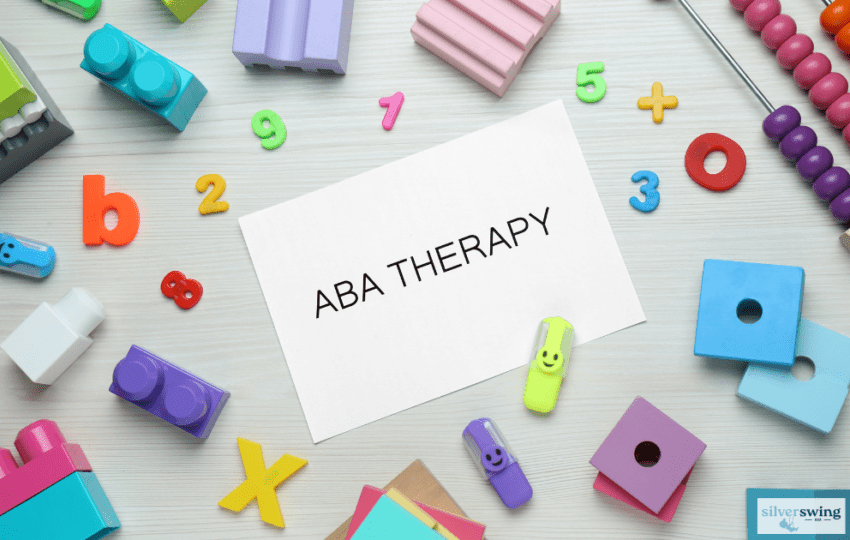Introduction
For families navigating the challenges of autism spectrum disorder (ASD), developmental delays, or behavioral concerns, one of the most effective and scientifically backed approaches is Applied Behavior Analysis (ABA) therapy. But the quality and success of ABA therapy often come down to the expertise of the provider. That’s where a certified ABA therapist comes in.
A certified ABA therapist is a trained professional with the credentials and knowledge to design and implement behavioral therapy programs based on the principles of ABA. They play a critical role in assessing behavior, creating personalized treatment plans, and helping individuals develop essential life skills.
This article dives deep into what it means to be a certified ABA therapist, the qualifications required, the services they offer, and why working with a certified professional is essential for achieving meaningful outcomes in behavioral therapy.
What Is a Certified ABA Therapist?
A certified ABA therapist is a credentialed specialist who applies the science of behavior analysis to help individuals learn new skills and reduce behaviors that interfere with daily life. Certification ensures that the therapist has undergone rigorous training, passed exams, and adheres to ethical guidelines established by professional boards such as the Behavior Analyst Certification Board (BACB).
There are multiple levels of professionals in the ABA field, each with varying degrees of responsibility and training:
1. Board Certified Behavior Analyst (BCBA)
- Requires a master’s degree in behavior analysis, psychology, or education
- Completion of supervised clinical hours
- Passing of the BCBA certification exam
- Responsible for designing treatment plans and supervising therapy implementation
2. Board Certified Assistant Behavior Analyst (BCaBA)
- Requires a bachelor’s degree and supervised experience
- Works under the guidance of a BCBA
- Assists in implementing and monitoring treatment plans
3. Registered Behavior Technician (RBT)
- Requires a high school diploma and 40 hours of training
- Must pass a competency assessment and RBT certification exam
- Works directly with clients under a BCBA’s supervision
While all of these professionals may be referred to as “ABA therapists” in a general sense, only those who hold certifications such as BCBA, BCaBA, or RBT are officially recognized as certified ABA therapists.
Roles and Responsibilities
Certified ABA therapists wear many hats, often balancing clinical, educational, and support roles. Their responsibilities may vary based on their certification level, but their core tasks often include:
Behavior Assessments
Before therapy begins, the certified ABA therapist conducts detailed assessments to understand a client’s strengths, deficits, and behavioral patterns. These may include:
- Functional Behavior Assessments (FBA)
- Skills assessments (e.g., VB-MAPP, ABLLS-R)
- Interviews with parents, teachers, and caregivers
- Direct observation in natural environments
Developing Treatment Plans
Based on assessment data, the therapist creates a tailored treatment plan with clear, measurable goals. These plans are regularly updated as the client progresses.
Implementing Therapy
Certified ABA therapists use evidence-based strategies such as:
- Positive reinforcement
- Prompting and fading
- Task analysis
- Natural environment teaching
- Discrete trial training
These methods are used to build communication skills, self-help routines, academic abilities, and appropriate social behaviors.
Data Collection and Analysis
One of the defining features of ABA therapy is data-driven decision-making. Certified ABA therapists consistently collect data to evaluate the effectiveness of interventions and modify treatment plans accordingly.
Parent and Caregiver Training
Therapists involve parents and caregivers in the process by teaching strategies to reinforce progress at home, ensuring consistency and generalization of skills.
Team Collaboration
They often work alongside teachers, speech therapists, occupational therapists, and psychologists to create a well-rounded support system for the client.
Why Certification Matters
In the world of behavioral health, certification is more than a title—it’s a promise of professionalism, competence, and ethical integrity. Choosing a certified ABA therapist offers several advantages:
1. Quality Assurance
Certified therapists are held to high standards and must meet ongoing education requirements. This ensures they stay current with research and best practices.
2. Ethical Conduct
All certified professionals follow strict codes of ethics, protecting client rights, ensuring confidentiality, and prioritizing client welfare.
3. Evidence-Based Practice
Therapists with proper certification are trained to use methods backed by scientific research rather than anecdotal strategies or outdated techniques.
4. Insurance Eligibility
Most health insurance providers require ABA therapy to be administered by certified professionals for claims to be accepted. Working with a certified ABA therapist increases your chances of coverage.
The Path to Becoming a Certified ABA Therapist
Becoming a certified ABA therapist requires education, training, and a passion for helping others. Here’s a general outline of the process:
For BCBAs:
- Earn a Master’s Degree
In behavior analysis, psychology, education, or a related field. - Complete Supervised Experience
At least 2,000 hours of fieldwork under a certified BCBA. - Pass the BCBA Exam
A comprehensive exam administered by the BACB. - Maintain Certification
Through continuing education and adherence to ethical standards.
For RBTs:
- Complete 40-Hour Training Course
Covers fundamental principles of ABA. - Pass a Competency Assessment
Conducted by a BCBA. - Pass the RBT Exam
A written exam covering core concepts. - Receive Supervision
Must work under ongoing supervision from a BCBA.
What to Expect from Working with a Certified ABA Therapist
Whether you’re the parent of a child beginning ABA therapy or an adult seeking behavioral support, working with a certified ABA therapist brings structure and clarity to the process.
Initial Consultation
You’ll typically begin with an intake meeting to review background information, concerns, and goals.
Assessment Phase
The therapist will conduct standardized assessments and observations to create a starting point.
Individualized Plan
Based on the assessment, you’ll receive a custom treatment plan that may include goals like:
- Improving communication (verbal or nonverbal)
- Reducing problem behaviors (e.g., aggression, self-injury)
- Increasing daily living skills (e.g., dressing, toileting)
- Building social interaction abilities
Regular Sessions
Sessions may occur multiple times per week, with RBTs or BCBAs working directly with the client in home, school, or clinic settings.
Progress Monitoring
You’ll receive regular updates, reports, and opportunities to discuss your child’s progress and any necessary plan adjustments.
Traits of an Effective Certified ABA Therapist
Credentials are essential—but so are personal qualities. Great certified ABA therapists often exhibit:
- Empathy and patience
- Strong communication skills
- Analytical thinking
- Adaptability and creativity
- Commitment to ongoing learning
- Genuine care for their clients’ well-being
These traits, combined with professional training, make a significant impact on therapy outcomes.
How to Find a Certified ABA Therapist
When searching for a certified ABA therapist, consider the following steps:
- ✅ Ask About Supervision: Ensure that any RBTs are supervised by a BCBA.
- ✅ Request a Consultation: Meet with the provider to ask questions about their approach and philosophy.
- ✅ Review Feedback: Look for reviews or testimonials from other families.
- ✅ Evaluate Communication: Choose a therapist who is transparent, approachable, and responsive.
Conclusion
A certified ABA therapist is more than just a provider—they are a partner in helping individuals overcome challenges, build independence, and thrive in everyday life. Their training, certification, and commitment to evidence-based practice make them a trusted resource for families and individuals seeking effective behavioral support.
If you’re considering ABA therapy, choosing a certified professional ensures you’re investing in high-quality, ethical, and results-oriented care. Whether you’re starting your journey or seeking better outcomes, a certified ABA therapist can help guide the way—one behavior at a time.

